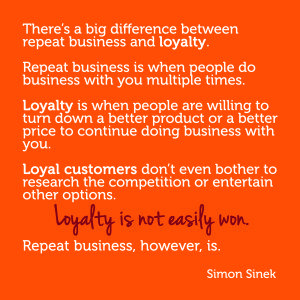I confess: I’m one of the thousands and thousands of people who are thrilled that Netflix is finally streaming Friends. The early seasons were especially clever, taking all kinds of language out of context for comedic effect. (Stick with me, I do have a business development point here!) In one episode, Chandler accuses Joey of becoming too feminine thanks to the influence of his new female roommate, which makes Joey pout. Chandler asks what he said wrong, and Joey answers, “It isn’t what you said, it’s how you said it.” (And thousands groaned, having heard exactly that charge somewhere along the line from a significant other.)
Somewhere through life experience, we’ve all learned the lesson that language can make a neutral concept unpleasant or aggressive. As a middle school teacher put it, “Say what you mean. Mean what you say. But don’t say it mean.” Language has power, so we know to choose words carefully to avoid tainting a message with unintended connotations.
How often do you pay attention to the language you use to describe business development?
Over the weekend, I led a workshop for a small group of lawyers who’ve been tapped as high-potential leaders within their firm. I started the workshop, as I often do, by asking what feels uncomfortable about business development, and one answer guided a large part of our conversation:
I don’t like having to sell myself.
That comment kicked off a conversation that can’t be replicated in a short article, but…
Consider:
- Do you feel like you have to “sell yourself” to build your practice? How does that feel? Does it change your perspective on your task to think of it as selling your services, helping someone to find a solution to a problem, securing new work, or in some other words?
- How do you feel about networking? How do you feel about meeting new people, making new connections, or talking with people about things that interest you?
- Do you enjoy following up with a new contact? What about keeping conversation going or checking in?
- What comes up when you think about having a sales conversation? Is it different if you think about offering to help solve a problem, asking for the business, or suggesting next steps?
Language is generative, and the words you choose carry a certain power or energy. Choose your words so that you don’t get stuck in a particular way of thinking. Substituting selling your services for selling yourself won’t magically transform your business development activity or results, but I guarantee you’ll approach the job differently if you can make that shift. (And if that’s a change you need to make, read the book Selling the Invisible, starting with my review.)

